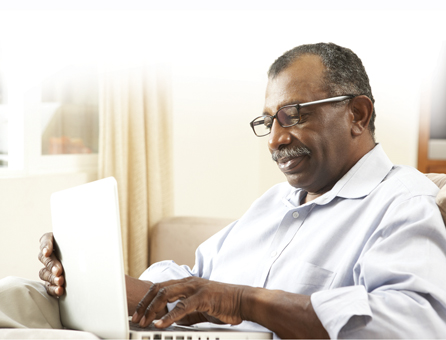
Cancer and complementary therapies
Advice and information on treatments and activities that go along with standard cancer medical treatments.
What are complementary therapies?
Complementary therapies are treatments and activities that you can have along with your standard medical treatment to try and feel better. For example, massage, counselling and aromatherapy.
It's very important to talk to your doctor if you're thinking of using a complementary therapy, even if you used it safely before your treatment. Your doctor can tell you if it is safe to use along with your treatment.
Why do people use complementary therapies?
Some people say that certain complementary therapies can help them to feel more relaxed and better able to cope with their cancer and the side-effects of treatment. For example:
Coping with anxiety
Hypnosis, massage, yoga, meditation, relaxation techniques, mindfulness
Coping with fatigue
Exercise, massage, relaxation techniques, mindfulness, yoga
Nausea and vomiting
Acupuncture, aromatherapy, massage, hypnosis, music therapy
Coping with pain
Acupuncture, aromatherapy, hypnosis, massage, music therapy
Problems sleeping
Exercise, relaxation techniques, mindfulness, yoga
Reducing stress
Aromatherapy, exercise, hypnosis, massage, meditation, tai chi, yoga
Complementary therapies can’t treat or cure cancer. If you’re interested in complementary therapies, we have some tips on choosing a complementary therapist.
What’s the difference between complementary therapies and alternative therapies?
- Complementary therapies. Complementary therapies are used together with standard medical treatments, such as chemotherapy or surgery to remove a tumour.
- Alternative therapies. Alternative therapies are used instead of standard medical care. There’s no scientific proof that alternative therapies work to treat cancer. More importantly, they may not be safe.
Standard medical treatments are now very effective at controlling and often curing cancer, and side-effects are better managed now. Choosing an unproven alternative may mean you miss out on a standard treatment that will help you.
I don’t like the idea of putting chemicals into my body. Should I try a natural alternative?
Natural doesn’t mean safe. Using a product that hasn’t been through proper clinical trials can be dangerous.
Doctors use standard treatments like surgery and chemotherapy because they have been scientifically proven as the best and most effective treatments against cancer.
‘Natural’ products like plants and herbs may:
- Have serious side-effects
- Damage your health
- Cause dangerous interactions with other medications
I’ve seen information that looks really convincing. How can I know what to believe?
There’s a lot of information about complementary and alternative therapies, especially online. It can be hard to make sense of it. The best thing to do is to ask a doctor for advice or to recommend websites with information you can trust. You can also ask our cancer nurses:
- Call our Support Line on 1800 200 700
- Email the nurses supportline@irishcancer.ie
- Visit a Daffodil Centre
We also have some tips on making sense of health claims, getting cancer information, and things to look out for around complementary therapies.
Does the Irish Cancer Society support alternative therapies?
We don’t support using alternative therapies. Here’s why:
- There’s no scientific proof that they work.
- They may not be safe.
- Choosing an unproven alternative may mean you miss out on a standard treatment that may help you.
You can read our position statement on complementary and alternative therapies.
The Irish Cancer Society supports research into new treatments. Read more about the research we fund thanks to your support.

For more information
Phone
1800 200 700



